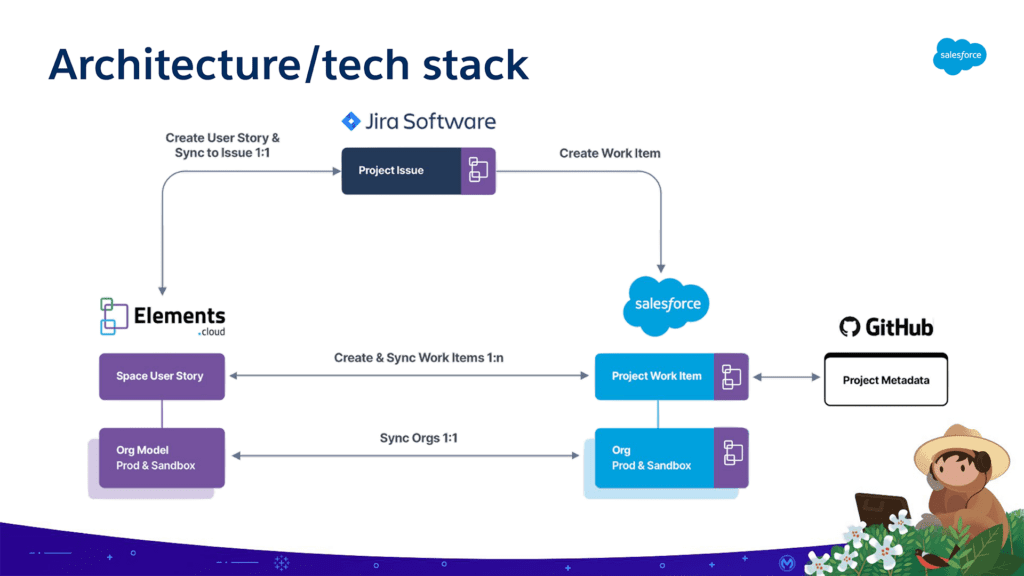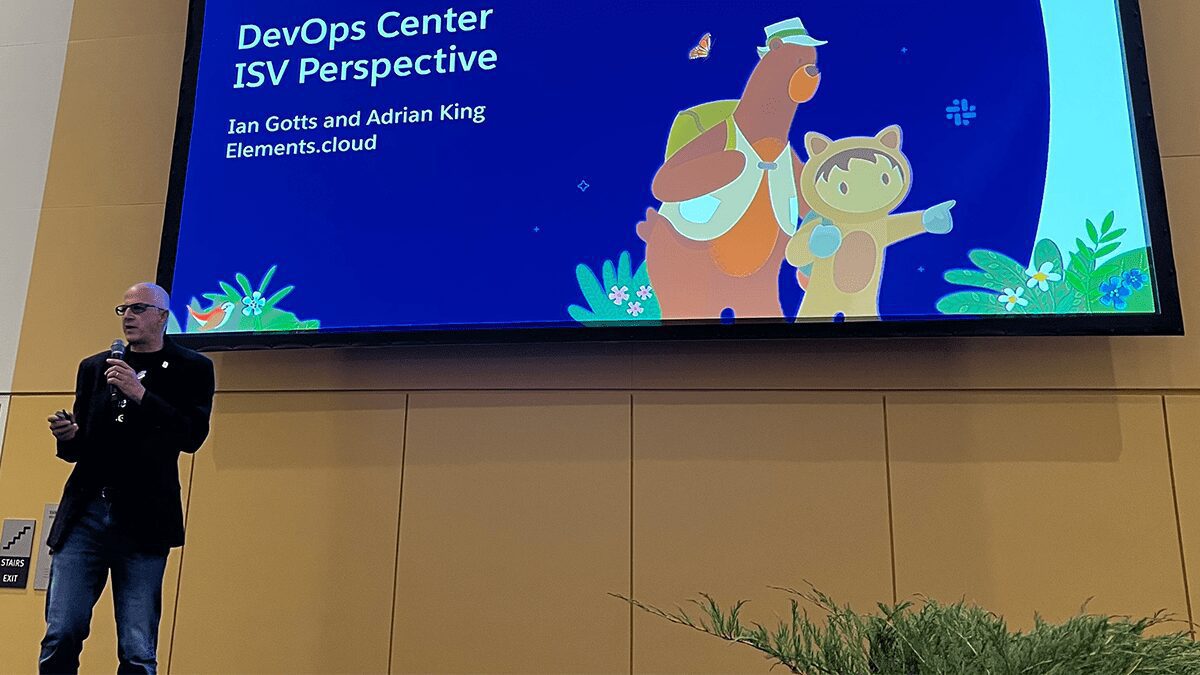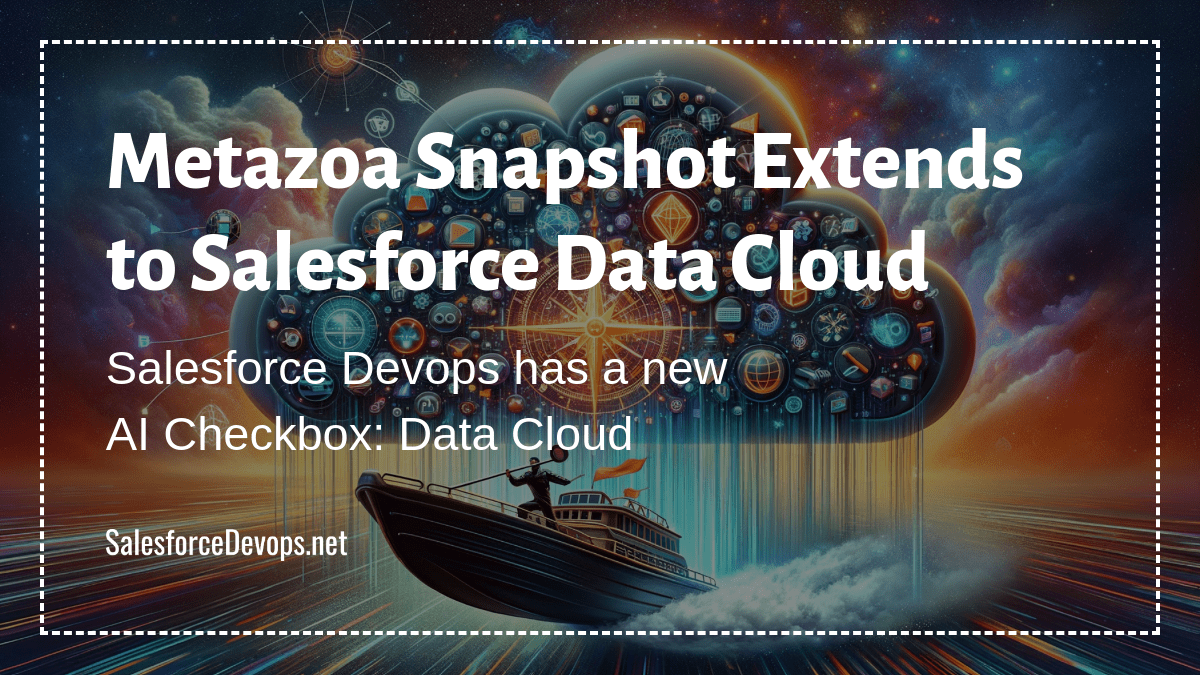Elements.cloud Launches DevOps Center Integration and More
At TrailblazerDX 2022 last week, San Francisco-based independent software vendor Elements.cloud announced advanced integrations with Salesforce and other SaaS systems in a press release. Three separate initiatives were announced, all of which should be available to customers by mid-2022. First, the company announced deep integration with Salesforce DevOps Center for application lifecycle management and Jira compatibility. Next, the company announced better support for multi-SaaS dependencies. The third announcement was on a novel use of the Salesforce Events for application observability.
DevOps Center Integration Launch at TrailblazerDX
Elements.cloud CEO Ian Gotts, customers, and employees shared a side stage with Salesforce in a session at TrailblazerDX in San Francisco on April 27, 2022. Elements.cloud customers were involved in the private beta of DevOps Center, and the company showed off an integration with Salesforce DevOps Center. A video of the event is available.
As previously described here, an integration with DevOps Center works because it is a managed package. After installation, the custom objects within the package become available to other packages in a target org. One of these objects, the Work Item, forms the root for defining and managing a single deployment action.

Elements.cloud maps the DevOps Center Work Item into user stories and Jira Issues. The system uses Jira to create an association between the DevOps Center Work Items and Jira Issues that must be created to implement a user story. Then DevOps Center Work Items are linked to Elements.cloud and Jira within the DevOps Center user interface. These enhancements should make DevOps Center more usable in larger projects.
Elements Multi-Cloud Dependencies
The company also announced Elements Multi-Cloud Dependencies. This service integrates external data dictionaries with Elements.cloud change intelligence functions. Elements.cloud already had a form of multi-SaaS metadata management based on importing external data dictionary definitions. Now, those data dictionaries are better integrated with the Change Intelligence functions of Elements.cloud.
“What’s new in Elements Multi-Cloud Dependencies is the ability to create new linkages between metadata items in different data dictionaries. Then Elements.cloud lets you visualize those dependencies for change management,” said Mr. Gotts in an interview.
Observability with Elements Org Adoption
The ability to understand what users are doing with Salesforce applications is currently very limited. In the JavaScript world it is easy to know exactly what users are doing when they visit a page. With proper application instrumentation, which can be as simple as a single line of code, it is possible to map a website visitor’s journey with precision. These capabilities are currently unavailable to all but the most inventive Salesforce users.
To help Salesforce users bridge the observability gap, Elements.cloud announced Elements Org Adoption. This is a new service available to Salesforce customers who subscribe to the Salesforce Event Monitoring service. Through analysis of Salesforce Events, Elements Org Adoption performs a frequency analysis of how often a particular Salesforce user interface element is being used. For example, if you have a Flow that implements a needed shortcut for end users, with Elements Org Adoption you can now see how frequently users are using your new Flow.
This is the first time a vendor has attempted to use Salesforce Events for systematic application usage analysis. Currently, Salesforce Events is part of the Salesforce Shield suite of security enhancements. The list price for adding Salesforce Event Monitoring is “10% of net spend.”
Elements.cloud Fills the Gaps
Elements.cloud works because it enhances the use of release automation. The company is clearly a leading Salesforce devops vendor, but it is not what you would consider a devops platform. While it lacks the ability to do pipeline management, Elements.cloud clearly fills in the requirements of upper layers of the SalesforceDevops.net Industry Map. It does this with a full-featured application lifecycle management system and a delivery-centric approach. This trio of announcements shows Elements.cloud listens to the marketplace and steps forward to fill important gaps in the Salesforce devops ecosystem.






